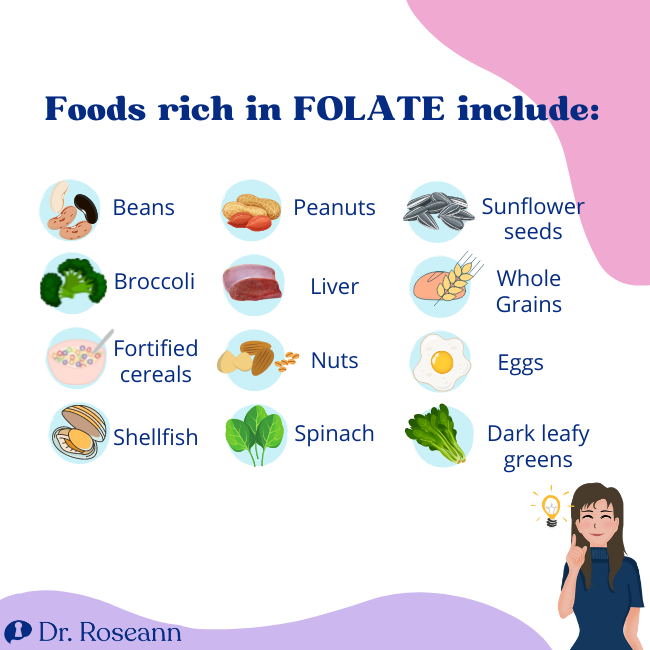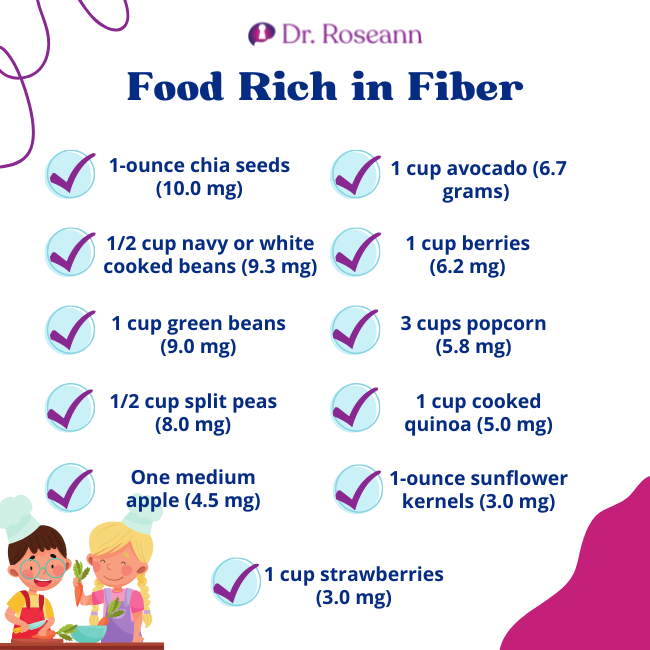We are all rushing around these days, particularly as we transition from Summer to Fall, and that probably means you aren't getting as many sit-down meals and may even just be grabbing bagels or chips on the fly. Trust me. You aren't alone!
The problem is that you're probably missing some essential nutrients affecting your brain and body function. That means low energy afternoons, brain fog, or even feelings of sadness, anger, or anxiety you cannot otherwise explain.
What you eat affects your brain and gut health, and your or your child's mental health could be affected by poor diet and insufficient nutrients.
The good news is that adding essential nutrients produces antioxidants that combat stress and support a taxed nervous system with the most helpful nutrients.
Nutrients help the nervous and circulatory systems work smoothly. Nutrient deficiency stresses the organs and puts one at risk for chronic diseases, cancers, and mental health conditions such as anxiety, depression, and ADHD.
So what are the best nutrients to help calm the brain and increase focus? Here are eight essential nutrients that support mental health.
Folate
There are thousands of diseases worldwide, and nine out of ten are caused by stress. Compounded stressors take their toll on the body, deplete nutrients, and interfere with the gut-brain connection and nervous system function.
Fortunately, B vitamins are the best stress-busters. There are eight forms of vitamin B. While all are needed in the body, the three most important for mental health are Folate, Vitamin B6, and Vitamin B12. All are water-soluble vitamins present in many foods but can also be taken in supplement form.
The genetic mutation MTHFR affects how the body can utilize the B vitamins. This can significantly affect how the nervous system functions and how well the body can detoxify. The MTHFR genetic mutation is prevalent, and approximately 70% of the US population has it. MTHFR is associated with many health and mental health conditions, such as ADHD, bipolar disorder, mood disorder, anxiety, OCD, autism, PANS/PANDAS, chronic Lyme Disease, and many other clinical conditions.
Vitamin B9, also known as Folate or Folic Acid, is usually present in B Complex dietary supplements and prenatal vitamins but can be taken by itself.
Folate is a required nutrient that assists the body with detoxification. Improper detoxification is associated with chronic disease states, mental health issues, and brain inflammation. More bioavailable methylated forms of folate are available to help the body properly detoxify.
Folate helps produce red blood cells and white blood cells in bone marrow, manufacture DNA and RNA, and transform carbohydrates into energy. Folate is especially needed during rapid growth, such as pregnancy, infancy, and adolescence.
Folate is beneficial to women of childbearing age, who need 400 mcg daily in addition to consuming food containing folate. Folate fosters healthy growth and function and lowers the risk of congenital disabilities, especially those involving the brain and spine. The body best absorbs the vitamin in supplement form, with 85 percent absorbed from supplements and 50 percent from food.
Folate deficiency leads to problems with detoxification, diarrhea, fatigue, irritability, poor growth, and a smooth, tender-feeling tongue.

Foods rich in folate include:
- beans
- broccoli
- fortified cereals
- shellfish
- peanuts
- liver
- nuts
- spinach
- sunflower seeds
- whole grains
- eggs
- dark leafy greens
Potassium
Potassium is a valuable nutrient that offsets the negative impact of sodium on your blood pressure. It fosters heart, nerve, and muscle function and delivers vital nutrients to cells while removing waste.
Low levels of potassium can affect one's mental health. Brain fog or mental fatigue, memory, mood regulation or mood swings, depression, psychosis, disorientation, and confusion can result from low potassium levels.
Low potassium can cause:
- Abnormal heart rhythm
- Constipation
- Muscle weakness
- Twitches
- Cramps
- Constipation
- Tingling
- Numbness
- Palpitations
- Memory issues
- Mental fatigue
- Mood Regulation
Low potassium should be addressed immediately. Sudden low potassium is possible due to diarrhea, vomiting, excessive sweating, antibiotics, laxatives, diuretics, over intoxication, or kidney disease.
Kids and adults need potassium for their brain and body to work properly but may not know how much they should take.
The recommended amount of potassium is 3,400 mg each day for adult men and 2,600 mg for women. Meanwhile, here are the recommended daily potassium levels for your kids.
Daily Potassium Levels for Children and Teens
- For infants up to 6 months of age: 400 mg
- 7 to 12 month: 700 mg
- 1 to 3 years: 2000 mg
- 4 to 8 years: 2300 mg
- 9 to 13 years: 2300 mg (female) to 2500 mg (male)
- 13 years above: 2300 mg (female) to 3000 mg (male)
- Adult Male: 3,400 mg
- Adult Female: 2,600 mg
Source: National Academy of Sciences (2019)
Natural Potassium Sources Include
- Bananas
- Milk
- Acorn Squash
- Lentils
- Kidney beans
- Legumes
- Kidney beans
- Sweet potatoes
- Raw spinach
Best Foods for Potassium
- One medium baked potato with peeling (926 mg)
- 3 ounces skipjack tuna (444 mg)
- 1 cup cooked acorn squash (896 mg)
- One medium banana (451 mg)
- 1 cup cooked lima beans (969 mg)
Some things can interfere with potassium levels. Drinking alcohol or taking laxatives and certain antibiotics can lower your potassium. In addition, lack of sleep can also lead to low potassium levels.
Calcium
If you don't have enough calcium in your diet, your bones will release calcium to compensate for the difference. This can lead to osteoporosis, which causes bones to become softer and more fragile.
While calcium is most commonly associated with strong bones and teeth, it is essential for every cell in the human body. More calcium is needed during times of rapid growth.
Calcium is essential for maintaining heart, muscles, and nerve health. It also helps to regulate many critical bodily processes as a signaling molecule. Without adequate calcium intake, you could experience serious health problems.
You may not realize that calcium is also essential for mental health. Calcium plays an important role in the electrical signaling or transmission of impulses between nerve cells. It fosters a calming and sedative effect on the nervous system and has been shown to decrease pain.
Low calcium levels are related to depression and stress. Calcium works in tandem with magnesium, vitamin D, and potassium.
It is recommended that people of all ages should consume calcium-rich foods and drinks to maintain healthy bones and teeth. However, a survey in the United States found that many people do not meet this recommendation.
In the United States, a survey found that calcium intake recommendations were met by:
- 15% of adolescent girls
- 10% of women over 50
- 22% of teenage boys
- Men over 50.
Supplementing increased these numbers slightly, but most people are still not getting enough calcium and often aren't eating calcium-rich foods. Severe dietary calcium deficiency leads to soft bones in children and osteoporosis in older adults.
Many still believe that cow's milk is the best way to get calcium, but vegetable sources are just as good and more absorbable. Here are some dietary sources of calcium.
Dietary Sources of Calcium:
- Boned fish
- Dairy products
- Dark green vegetables
- Kale
- Spinach
- Bok choy
- Broccoli
Food Servings for Calcium
- 8 ounces of plain, low-fat yogurt (488 mg)
- 1/2 cup tofu (434 mg)
- 1 cup cooked spinach (245 mg)
- 1 cup low-fat milk (300 mg)
- 1 cup soy milk (305 mg)
Dietary Fiber
Dietary fiber promotes mental health by improving gut microbiota type and quality (Makki et. al, 2018). There is a gut-brain connection and a healthy gut is necessary for neurotransmitter production. The neurotransmitter serotonin is associated with focus and mood, and 95% of it is exclusively created in the gut.
Fiber helps digestion and regulates blood sugar and cholesterol levels. Regulated blood sugar has long been associated with mood and focus. However, most people are not consuming enough fiber. This can lead to mood swings, feeling unfocused, frequent hunger, and weight gain. Low dietary fiber is associated with constipation and bloating.
Kids and adults need 14 grams of fiber for every 1,000 calories they eat. This means toddlers ages 1-3 should get about 19 grams of fiber daily, and kids ages 4-8 should consume around 25 grams daily.
Women need 22 to 28 mg of fiber daily, while men need 28 to 34 mg.
Whole grains, veggies, and fruits are excellent sources of fiber. You can also take supplementary fiber if you can't get enough from your diet alone or if your child is a picky eater. Slipping fiber into soups and smoothies is an easy parent hack to up your fiber intake.

Food Rich in Fiber
- 1-ounce chia seeds (10.0 mg)
- 1/2 cup navy or white cooked beans (9.3 mg)
- 1 cup green beans (9.0 mg)
- 1/2 cup split peas (8.0 mg)
- 1 cup avocado (6.7 grams)
- 1 cup berries (6.2 mg)
- 3 cups popcorn (5.8 mg)
- 1 cup cooked quinoa (5.0 mg)
- One medium apple (4.5 mg)
- 1-ounce sunflower kernels (3.0 mg)
- 1 cup strawberries (3.0 mg)
Vitamin D
Vitamin D is essential for bone health and calcium absorption and for supporting hormones. Our bodies create vitamin D through “photolysis”, which occurs when our skin is exposed to ultraviolet B rays from the sun. Once created, vitamin D travels through the bloodstream to the liver, turning into a calcidiol chemical.
Every tissue in the body has vitamin D receptors. This includes the brain, heart, muscles, and endocrine and immune system. Having enough vitamin D fosters brain and body functions and lowers anxiety.
Seven in ten Americans have vitamin D deficiency, which has medical and psychological consequences. Low levels of vitamin D are linked to anxiety and depression. The brain and endocrine system can't function properly without enough vitamin D, and our hormones play an important part in mood regulation.
Moreover, vitamin D plays a role in magnesium homeostasis, which is necessary for numerous biochemicals in the body and calming the brain. A calm brain is necessary for focus, learning, and managing stress.
If you are experiencing anxiety and depression, keeping tabs on your vitamin D levels is a good idea. Those with clinical mental health diagnoses should maintain high average vitamin D in their blood.
Best foods for Vitamin D
- 3 ounces salmon: 383 to 570 IU
- 3 ounces canned light tuna: 231 IU
- 1 cup unsweetened soy milk: 119 IU
- 1 cup 1% milk: 117 IU
- 8 ounces nonfat plain yogurt: 116 IU
- 1 cup 100% fortified orange juice: 100 IU
Vitamin B12
Besides being a great stress-buster, vitamin B12 fights cancers and heart disease. B12 is known as the energy vitamin because it powers up the brain and body and can help increase alertness.
Low levels of B12 can make one feel unfocused, fatigued, mentallytired or have brain fog, and can interfere with mood and managing stress.
All of the B vitamins play an important role in producing hormones that affect how our brain functions. As noted previously, the MTHFR genetic mutation interferes with how the body can utilize the B vitamins. Research shows us that lower levels of vitamin B12 is linked to depression, mood disorders, and difficulties with attention and focus.
Foods containing Vitamin B12 include:
- fish
- shellfish
- liver
- lean meat
- egg yolks
- poultry
- dairy products (milk, cheese, and yogurt)
Vitamin C
Vitamin C boosts immunity. It also plays an essential role in maintaining healthy brain function.
Vitamin C plays a key role in how the brain and central nervous system operate. It helps the brain's neurotransmitters communicate, and brain cells generate and mature, as well as create and maintain neural connections.
Vitamin C helps modulate the neurotransmitter dopamine at the synapses in the brain — a crucial process for the nervous system's proper functioning. Also called the happy hormone, Dopamine is the primary driver of the brain's reward system and fosters feelings of well-being.
Dopamine spikes when we experience something pleasurable such as getting praised.
Low levels of vitamin C have been found to decrease dopamine and serotonin in the brain, which is linked to anxiety and depression. Supplementation of vitamin C has been found to improve depression even in patients with complex depression and mania (Naylor & Smith, 1981).
Vitamin C is abundant in many fresh fruits and green leafy vegetables. A healthy diet is still the best way to get vitamin C. However, supplementation can work too.
Avoid taking vitamin C or multivitamins containing it within an hour of taking ADHD medications or other medications, as it can prevent the meds from being absorbed into the bloodstream.
Vitamin C Food Sources
- Apples
- Calamansi
- Cantaloupe
- Citrus Fruits
- Orange
- Lemon
- Watermelon
Magnesium
Magnesium is one of the most critical minerals in the body, fueling over 300 bodily functions. It helps regulate the body's stress response, support the nervous system and metabolism, and synthesize antioxidants like glutathione.
Magnesium also helps to maintain cognitive function, attention, and social behavior. It calms the brain and makes one feel more comfortable managing stress. It also can help calm a busy brain for sleep.
Magnesium is one of the safest supplements for stress regulation with minimal side effects. It must be dosed to bowel tolerance, as it can relax the body too much and loosen stools. Magnesium supplements can lower stress and foster deep sleep, high energy levels, and a calm disposition.
Magnesium is in demand within the body and can get depleted. This causes bodily stress, which results in cancers, heart diseases, diabetes, osteoporosis, and depression.
Magnesium deficiency is heavily linked to mental health conditions such as anxiety, OCD, and depression.
Magnesium acts incredibly fast in the body. Most people feel calmer within minutes, making it a top-rated supplement in our stressful world.
You can also enhance your magnesium levels by consuming avocados, nuts, and legumes. Young children enjoy seeds like sunflower, pumpkin, sesame, and flax that contain magnesium.
No matter what struggle you or your child is experiencing, nutrients play an essential part in calming the brain and body. Taking time to tweak your diet and add supplements can bring relief quickly and much more safely than psychiatric medication. And with developing brains, we want to be careful about medicating our kids, which is done way too much with little evidence to support it.
Citations:
HSIS by PAGB UK (2022), What happens if people don't get all the vitamins and minerals they need?
Harvard Health (2021), 4 essential nutrients — are you getting enough?
https://www.health.harvard.edu/blog/4-essential-nutrients-are-you-getting-enough-2021031622124
Makki, K., Deehan, E. C., Walter, J., & Bäckhed, F. (2018). The Impact of Dietary Fiber on Gut Microbiota in Host Health and Disease. Cell host & microbe, 23(6), 705–715. https://doi.org/10.1016/j.chom.2018.05.012
Medical News Today (2022), What foods are high in folate, and what are its benefits?
https://www.medicalnewstoday.com/articles/287677
Naylor, G. J., & Smith, A. H. (1981). Vanadium: a possible aetiological factor in manic depressive illness. Psychological medicine, 11(2), 249–256. https://doi.org/10.1017/s0033291700052065
National Academy of Sciences (2019). Dietary Reference Intakes for Sodium and Potassium. https://nap.nationalacademies.org/resource/25353/030519DRISodiumPotassium.pdf
Regenerate Medical Concierge (2020), 7 Nutrients You're Probably Not Eating Enough Of
https://regeneratemedicalconcierge.com/7-nutrients-youre-probably-not-eating-enough-of/
Active Health SG (2022), 7 signs that show you are not getting enough nutrients
https://www.activehealth.sg/read/nutrition/7-signs-that-show-you-are-not-getting-enough-nutrients
Always remember… “Calm Brain, Happy Family™”
Are you looking for SOLUTIONS for your struggling child or teen?
Dr. Roseann and her team are all about solutions, so you are in the right place!
There are 3 ways to work with Dr. Roseann:
You can get her books for parents and professionals, including: It’s Gonna Be OK™: Proven Ways to Improve Your Child’s Mental Health, Teletherapy Toolkit™ and Brain Under Attack: A Resource For Parents and Caregivers of Children With PANS, PANDAS, and Autoimmune Encephalopathy.
If you are a business or organization that needs proactive guidance to support employee mental health or an organization looking for a brand representative, check out Dr. Roseann’s media page and professional speaking page to see how we can work together.
Dr. Roseann is a Children’s Mental Health Expert and Therapist who has been featured in/on hundreds of media outlets including, CBS, NBC, FOX News, PIX11 NYC, The New York Times, The Washington Post,, Business Insider, USA Today, CNET, Marth Stewart, and PARENTS. FORBES called her, “A thought leader in children’s mental health.”

She is the founder and director of The Global Institute of Children’s Mental Health and Dr. Roseann Capanna-Hodge. Dr. Roseann is a Board Certified Neurofeedback (BCN) Practitioner, a Board Member of the Northeast Region Biofeedback Society (NRBS), Certified Integrative Medicine Mental Health Provider (CMHIMP) and an Amen Clinic Certified Brain Health Coach. She is also a member of The International Lyme Disease and Associated Disease Society (ILADS), The American Psychological Association (APA), Anxiety and Depression Association of America (ADAA) National Association of School Psychologists (NASP), International OCD Foundation (IOCDF) International Society for Neurofeedback and Research (ISNR) and The Association of Applied Psychophysiology and Biofeedback (AAPB).
© Roseann-Capanna-Hodge, LLC 2023
Disclaimer: This article is not intended to give health advice and it is recommended to consult with a physician before beginning any new wellness regime. *The effectiveness of diagnosis and treatment vary by patient and condition. Dr. Roseann Capanna-Hodge, LLC does not guarantee certain results.













